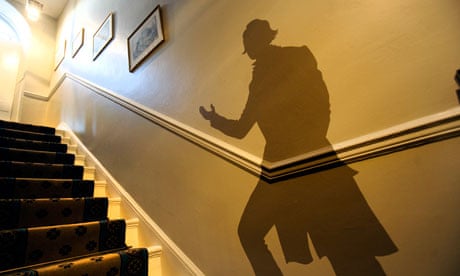The Daily Mail reports with incredulity the news that a study has "found that people really are none the wiser about whether they're reading a Charles Dickens masterpiece or one of the works of Edward Bulwer-Lytton, billed as 'the worst writer in history'." This irritated me, on many levels, and I looked into it.
Here's the study, printed in the Journal of Quantitative Linguistics, and the details, from author Mikhail Simkin. Basically, he put a quiz online – you can take it here – in which he asked participants to guess whether an extract was from Dickens or Bulwer-Lytton.
"The average score is about 50%, which is on the level of random guessing. This suggests that the quality of Dickens's prose is the same as of that of Bulwer-Lytton," Simkin finds. You can read the study in its entirety here. Simkin concludes: "I began this paper with the question: Are famous writers different from their obscure colleagues? The answer is: Yes, they have more readers."
My first irritation is with the assumption that Bulwer-Lytton is the worst writer in history. This is just ludicrous. Yes, there might be the annual Bulwer-Lytton Fiction Contest, in which participants compete to write the worst opening sentence to a novel possible, in honour of the eye-wateringly convoluted first sentence of his novel Paul Clifford: "It was a dark and stormy night; the rain fell in torrents — except at occasional intervals, when it was checked by a violent gust of wind which swept up the streets (for it is in London that our scene lies), rattling along the housetops, and fiercely agitating the scanty flame of the lamps that struggled against the darkness."
But there was more to Bulwer-Lytton than this one sentence. I spoke to a descendant of his a few years ago, and he was keen to defend the writer's honour, telling me: "He was a remarkable man and it's rather unfair" that the competition was named after him "for entirely the wrong reasons. He was a great champion of the arts, and made such a huge difference to people in all walks of life … he was politician, writer, playwright and philosopher." He also pointed out that being the first person "to have penned a cliché was a mark of genius", adding that as well giving us the over-used phrase "a dark and stormy night" Bulwer-Lytton also invented the sayings "the pen is mightier than the sword", "the great unwashed" and "the almighty dollar".
Now, I haven't read Bulwer-Lytton, and I'd be keen to hear from those of you who have. But I very much doubt he's the worst writer in history. There are many stronger contenders for that title.
My second irritation is the assumption that the quality of an author can be judged on an extracted sentence. I find others are in agreement with me here: "The study also assumes that if Dickens is a 'genius', every line of his prose should be 'genius'. It's a false analogy to presume that genius is like a pie; ie, if a pie is a pumpkin pie, every bite will taste like pumpkin pie. Genius is nothing like pie. If you've ever read the first half of A Tale of Two Cities, which is confusing and desperately in need of revision, you'll know better."
This unnamed professor of literature who criticises the study also points out that the joy of Dickens isn't really in his prose - it's in the characters he creates, and in his stories.
But quibbles aside, do let me know how you did on Simkin's quiz (I got 67% – beat that!). And taking his theme on, here's one I've done myself, featuring the great man alongside some other authors. All of these sentences have been published. Which is Dickens?
"I have wanted you for so long now," he said roughly, "I've no memory of how it feels to be devoid of the craving. But you must know what you do. I need you to think of who you are and where you are and who I am."
"You know what I am going to say. I love you. What other men may mean when they use that expression, I cannot tell; what I mean is, that I am under the influence of some tremendous attraction which I have resisted in vain, and which overmasters me."
"Oh, God! it is unutterable! I cannot live without my life! I cannot live without my soul!"
"I'm here, and I love you. I have always loved you, and I will always love you. I was thinking of you, seeing your face in my mind, every second that I was away. When I told you that I didn't want you, it was the very blackest kind of blasphemy."
"I have become my own island state. A ravaged, war-torn land where nothing grows and the horizons are bleak."

Comments (…)
Sign in or create your Guardian account to join the discussion